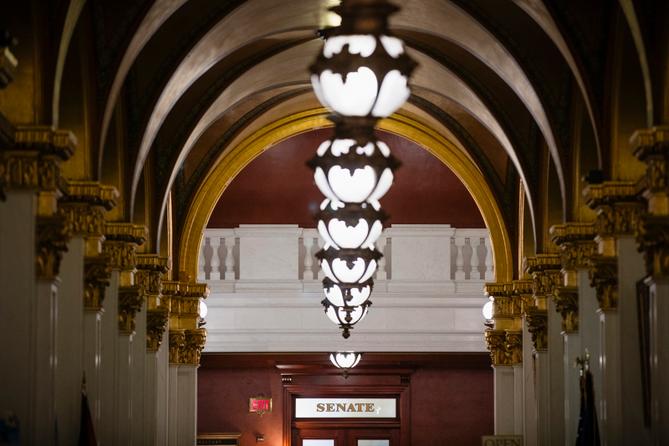This story first appeared in The Investigator, a weekly newsletter by Spotlight PA featuring the best investigative and accountability journalism from across Pennsylvania. Sign up for free here.
HARRISBURG — Deep within Pennsylvania’s 36-page Right-to-Know Law, a clause says that correspondence between a state lawmaker and a person seeking their help is off-limits to the public — unless that person is a lobbyist.
For years, the legislature has seemingly treated the language as if it doesn’t exist, summarily rejecting all requests for its emails, letters, or other forms of communications regardless of who was on the sending or receiving end.
This past summer, Spotlight PA decided to put the law’s lobbyist clause to the test by requesting from both the state House and Senate copies of communications between legislators and a narrow group of well-known lobbyists.
Both chambers swiftly denied the request. Spotlight PA appealed — and lost again.
In many ways, the outcome was not surprising.
When the General Assembly approved the state’s Right-to-Know Law 15 years ago, it effectively exempted itself from providing access to records that it required the executive branch, for instance, to make public.
It also did not allow the Office of Open Records, an independent state agency, to handle disputes over access to its public records. The agency decides conflicts involving most other state and local government offices, disputes that often arise after access to a record has been denied or a record is heavily redacted.
Instead, the legislature effectively gave itself self-policing powers. In the state Senate, the appeals officer is the chamber’s secretary, a position appointed by Senate leaders. In the state House, the appeals officer is a lawyer who answers to the ranking Republican (despite the chamber being controlled by Democrats currently). And if one of those appeals officers has a conflict, the matter is referred to the Legislative Reference Bureau, whose director is also appointed by legislative leaders.
Since the public records law went into full effect in 2009, the state Senate has mediated 32 appeals by requesters, and the state House has mediated 34. All but three were either denied, dismissed, or resolved before a decision was made, according to data from both chambers. The Office of Open Records hears several thousand appeals annually, and according to its yearly reports, has partially or wholly granted between 20% and 30% of appeals in recent years.
Over the years, some good-government groups have urged changes to the law so that disagreements over legislative records are decided by the Office of Open Records. They argue this shift could give the public more confidence that decisions aren’t influenced by political or other considerations.
The section of the public records law at the center of Spotlight PA’s dispute over lobbyist communications deals with records that are exempt from disclosure. According to that section, “correspondence” between lawmakers and constituents that would identify the person or the reason they are writing is exempt — but the exemption explicitly does not apply to correspondence between lawmakers and lobbyists.
Both the state Senate and House hired a private law firm, Stevens & Lee, to defend their position that the records should remain unavailable. The chambers argued, among other things, that in crafting the law, the General Assembly created 19 specific categories of records it must make public.
Communications, they said, do not fall under any of those 19 categories, which largely cover financial records. Those categories, they argued, take precedence, because lawmakers made clear their intent to limit the scope of records they are required to make public.
BEFORE YOU GO… If you learned something from this article, pay it forward and contribute to Spotlight PA at spotlightpa.org/donate. Spotlight PA is funded by foundations and readers like you who are committed to accountability journalism that gets results.

